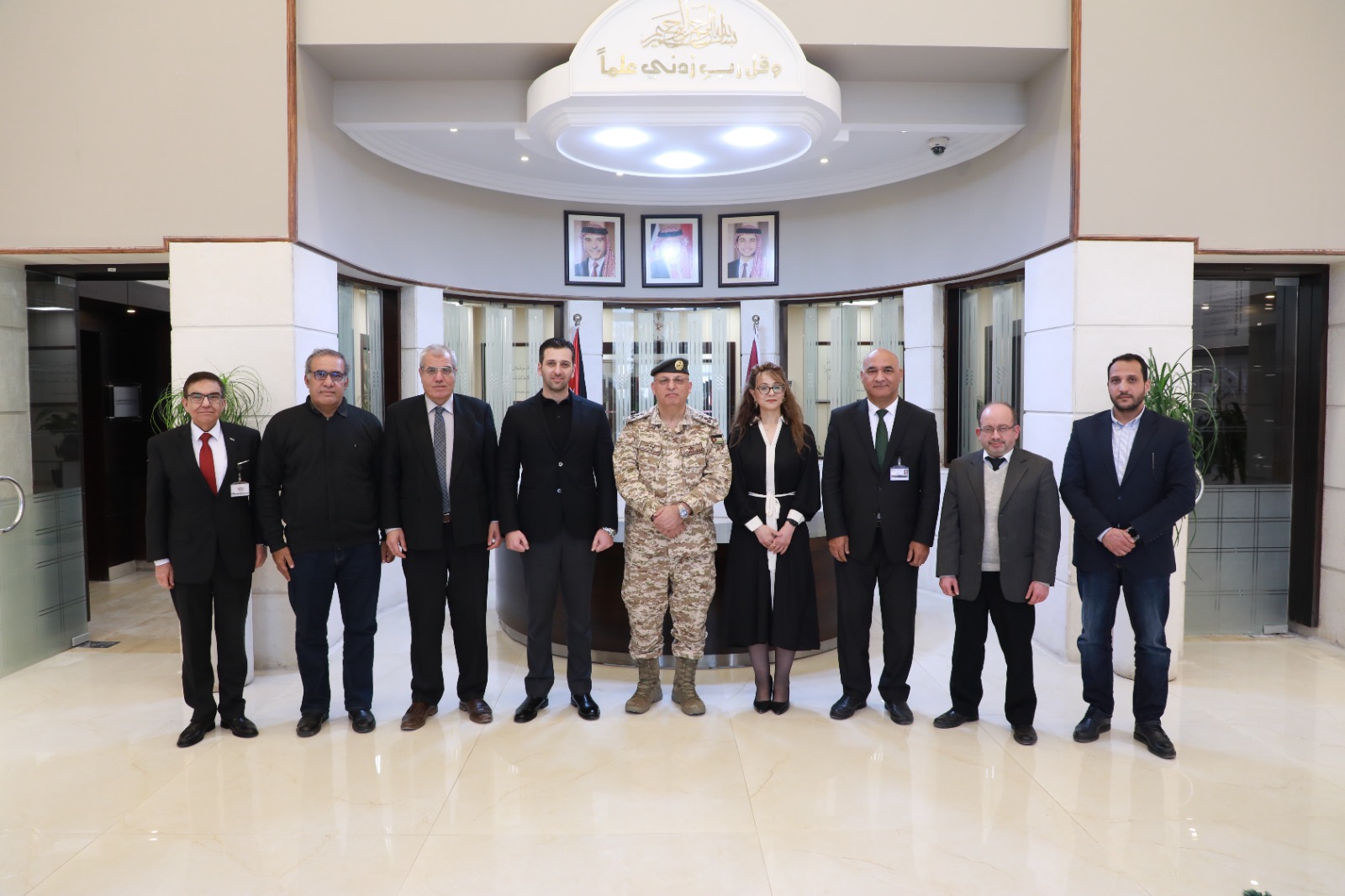
Amman – The Middle East University and the Royal Jordanian Geographic Centre have discussed a unique partnership path that will establish a package of diploma programs and specialized training courses in several fields, which include remote sensing, space technology, global navigation systems, and more.
The meeting was attended by the General Director of the Royal Jordanian Geographic Centre, Director of the Regional Center for Space Science and Technology Education for Western Asia, Brigadier General Eng. Muammar Hadadin, and on behalf of the university, the meeting was attended by the Vice Chairman of the Board of Directors, Dr. Ahmad Nasereddin, the University President, Prof. Salam Al-Mahadin, and the Director of the Consulting and Training Center, Prof. Anis Al-Mansour.
In this regard, Brigadier Hadadin, in the presence of the Director of Scientific Affairs and Training, Dr. Hanna Sabat, the Head of the Training Department, Dr. Qais Al-Omari, and the Head of the Academic Programs and Scientific Research Department, Dr. Ammar Al-Sakji, said that university degrees are considered purposeless if graduates do not possess creative skills and higher knowledge. He added that the Middle East University has been able to successfully complete this task, which requires serious awareness and an urgent understanding of labor market requirements, through its optimal investment in its students.
For his part, Dr. Nasereddin said that the university sees the vision of His Majesty King Abdullah II bin Al Hussein as a path that views knowledge as a factor that contributes to our nation’s development. He continued by saying that it has become evident that nothing can replace education in the process of building nations and changing the world to a better, more complete and beautiful place, pointing out that the university has come a long way when it comes to building knowledge and investing in human capabilities.
In turn, the University President, Prof. Al-Mahadin, explained that the university’s main focus revolves around the university’s educational and academic position among its peers. She added that it is no longer acceptable to view accreditations as mere certificates hanging on the wall, as the issue no longer has anything to do with their number, but rather the way the university views its contributions to the improvement and elevation of the educational process.
The Director of the Consulting and Training Center, Prof. Al-Mansour, stressed the university’s seriousness in providing students with a package of vocational programs and training courses that provide them with a full year’s worth of academic, cognitive, and technical development after graduation, which makes them sufficiently qualified for all labor market requirements.
